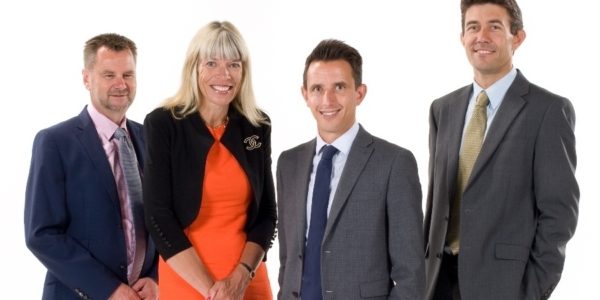Do you know what the tax implications of growing your business are?
18/06/2018 - Ensors

Ensors’ Andrew Scott takes a look at the tax implications of the growth of your business. From tax relief on premises to share schemes, innovation and even Brexit, read on for some useful ideas on what to look out for as your business grows.
Is paying tax a good thing?
To put it another way, is making a profit a good thing? Because if you pay tax, you’ve made money in the first place. However, there’s no point in paying more tax than you have to.
We can offer you expert guidance from our partner-led tax team. We’re thoroughly up to date on the latest rules and we strongly believe your business should be able to claim everything you’re entitled to – and there are more opportunities than you may realise.
It’s important your tax affairs are taken care of properly – to avoid getting penalised but also if you plan to sell your company because a good tax history will increase the value to potential buyers.
Should I manage my business through a company? Is this more tax efficient?
It depends on your circumstances of course, but:
Yes – because then you could claim Research and Development tax credits and running your business as a company means you can receive the profits through dividends. These have a lower tax rate up to a certain point.
No – a business owner who generates profits over £150k which they do not plan to reinvest would probably be better off using the sole trader route of taxation.
We can help you figure out which would be the most tax efficient method to run your business.
What tax-free benefits are available?
In general, if your business pays for personal expenses, these are taxable. However, there are still a couple of tax perks you can take advantage of.
For instance, if you own a company, you can put up to £40k a year into your pension plan completely tax free. However, this allowance tapers if you earn over £150k. The company also gets tax relief. You’ll also be able to use any unspent allowances from the preceding three years on the proviso you were a member of a pension scheme.
The Ensors tax team are experts in tax-free benefits. Our affiliated investment advisers can find the best pension plan for your business and you, and our award-winning specialist pensions’ team can provide a range of ancillary services for pension schemes, including accounts preparation, bank account management, audit and employer covenant reviews, which are vital if your business wants to set up its own scheme.
Did you know a mobile phone contract registered in the name of your company is also classed as a tax-free benefit? This also entitles your company to claim Corporation Tax relief.
Are company cars tax efficient?
Less so now, because of increases in vehicle benefit tax rates. Generally, where a car’s CO2 emissions are ultra low, or the vehicle is a van and has a lower benefit charge, it may be more tax efficient to put the vehicle through your company.
In most cases, it’s smarter tax-wise to receive a cash allowance through the business to pay for a personal car, and then claim mileage (it’s important to keep proper records – we can help with this).
We’ll also undertake a complete analysis for you and provide advice on whether a company car, van or direct cash payments is the best method for your business.
Since the rise in dividend tax rates – is there a more tax efficient way to extract profits from my personal company?
Many private company owners draw a low salary (£8,424 in the current tax year) and receive the remainder in dividends, because these have no National Insurance liabilities.
The tax-free dividend allowance was cut from £5,000 to £2,000 after 6 April 2018. If your business is searching for funds to grow and you find yourself with spare cash, you could lend money to the business and charge commercial interest rates. We can provide full advice on this, as well as assist with the necessary paperwork, and you’ll be able to earn up to £17,850 interest tax free – and your company will get tax relief on the payments.
What’s the best way to keep and reward the key employees who are helping my company grow?
One way is to offer shares in the company to key staff, so they can have a stake in the business. If you decide to offer the shares at below market value, there’ll be tax implications. We can steer you through these.
Setting up a tax-advantaged scheme gives certain employees the option to buy shares at a later date with a potentially higher value at a lower price, and with beneficial tax treatment. We’ll help you draw up the proper documentation, and make sure the various qualification criteria are met.
What’s the best way to invest tax efficiently to help scale up my company?
If your business is looking to grow further and you want to fund a scale-up without surrendering further equity, and you’ve sold another asset that has then resulted in a capital gain, it’s worth looking at claiming EIS reinvestment relief.
This enables deferral of the capital gain by using the proceeds to invest in a subscription for new company shares.
The Ensors tax team will guide you through this, because there are several conditions to meet. Reinvestment relief is unique, because other forms of EIS relief aren’t available to shareholders if they own more than a 30% stake ina qualifying company.
Can my company get tax breaks for being innovative?
We want to help you grow. If you are a Small to Medium Enterprise (SME) with projects exploring science or technology advances, your costs may qualify for tax breaks of 33.35p for every £1 of qualifying expenditure, if you’re making a loss. The tax benefit increases to43.7p for every £1 spent on R&D for profit-making companies.
Also, the Patent Box allows companies using patented inventions to benefit from a special 10% Corporation Tax rate on their profits. The company must be owners of or have exclusive licences for the patents and must also be undertaking qualifying development on them. We will advise if you meet these criteria.
What tax incentives exist for a business investing in new premises?
Although buildings don’t generally receive initial tax relief (except when used for qualifying R&D purposes), some fixtures such as machinery and fixed plant, water, lighting and electrical systems do qualify for capital allowances. Every business is allowed a 100% Annual Investment Allowance (AIA) up to a maximum of £200k of its qualifying capital expenditure, with reductions in rates over this limit.
We’ll make sure you claim all relevant tax relief.
As well as the AIA, businesses may also claim 100% Enhanced Capital Allowances for water-efficient and energy-saving projects on the Energy and Water Technology Lists published by the government. It’s always worth checking with the suppliers who are listed before planning to develop your business property. We can advise you on this.
What tax implications should I bear in mind when it comes to trading abroad and taking advantage of Brexit?
As we move closer to exiting the European Union, businesses are looking at ways to sell their products and services around the world. Although the VAT rules are often complicated, an important issue is the risk of customers deducting Withholding Tax (WHT) when they pay your invoices.
The UK has Double Tax Treaties with most countries, which allow payments to be given without the WHT being deducted. Double tax relief could be claimed by UK businesses as a way of relieving WHT against their tax bill in the UK, however, the qualification conditions are complex.
At Ensors, we’ll advise if your business can claim double tax relief. We’re also well-connected internationally, through an overseas network of accountants who can help your organisation get set up abroad.
Ensors always keeps up to date with the latest compliance changes and tax legislation, so we can ensure that if you qualify for tax relief, we’ll be able to claim it for you. Contact Andrew Scott to find out more.
All articles on this news site are submitted by registered contributors of SuffolkWire. Find out how to subscribe and submit your stories here »



